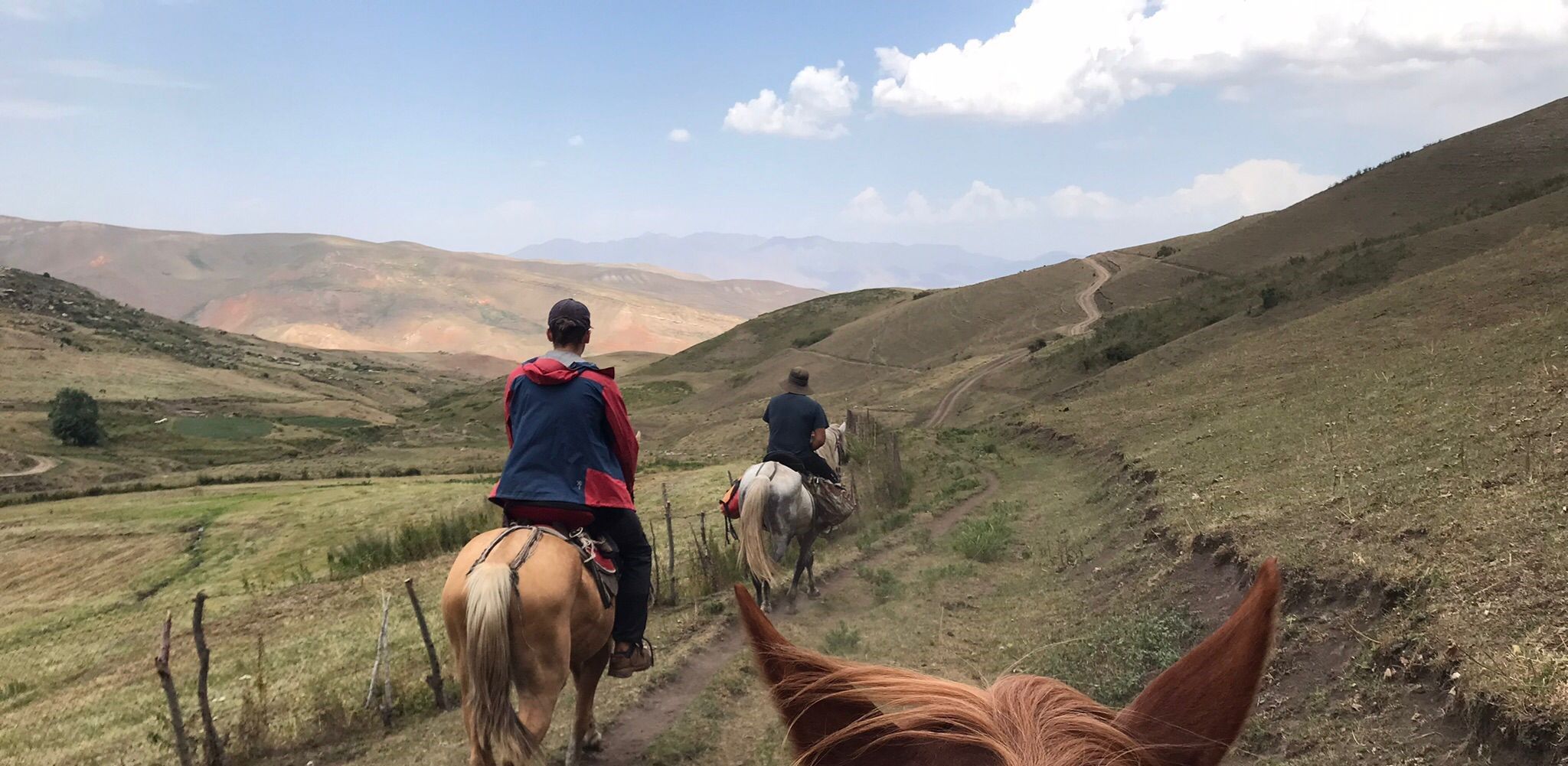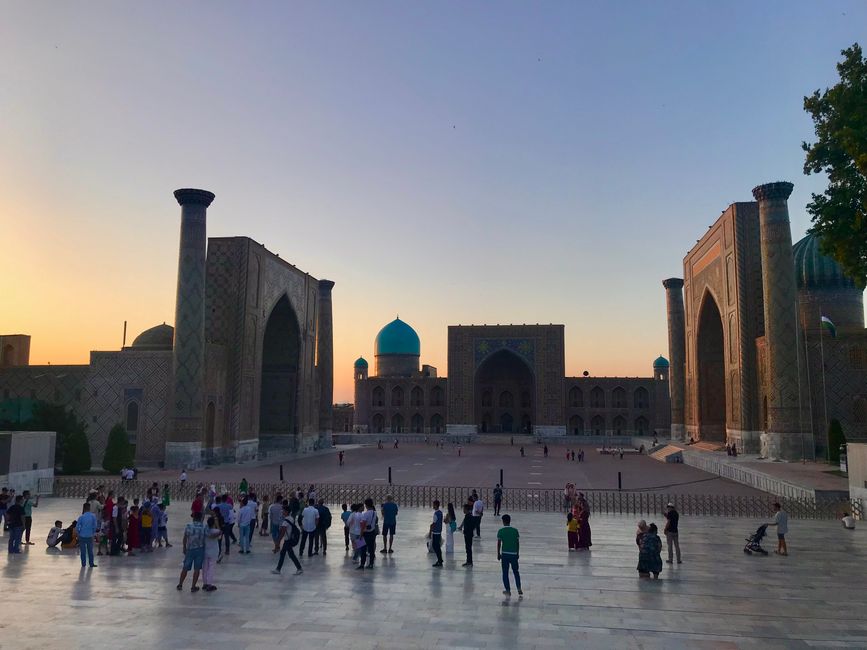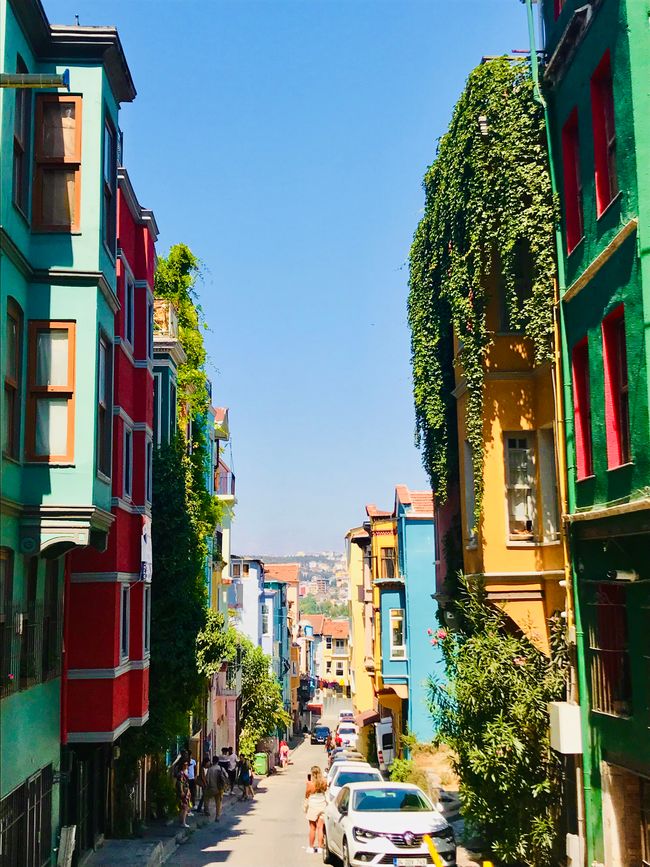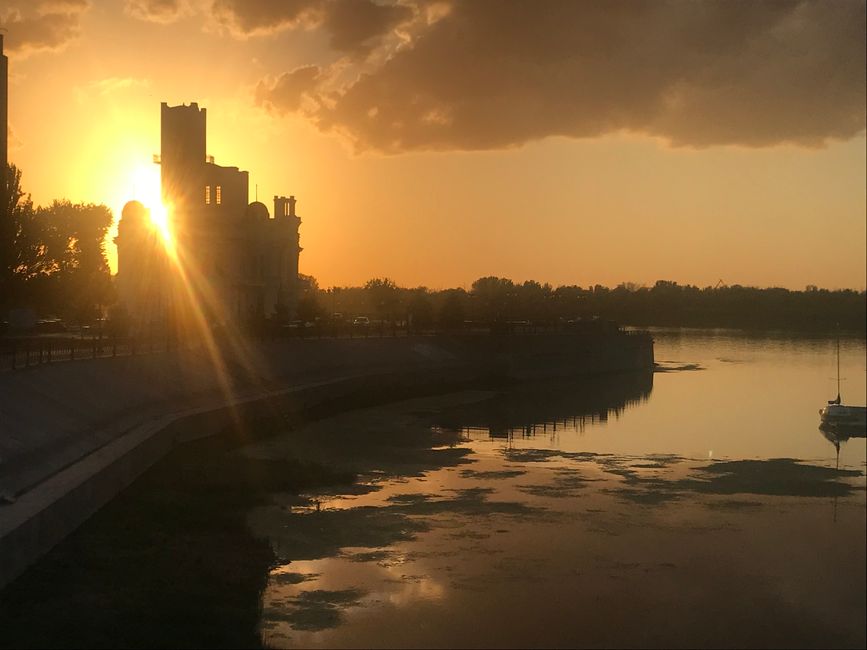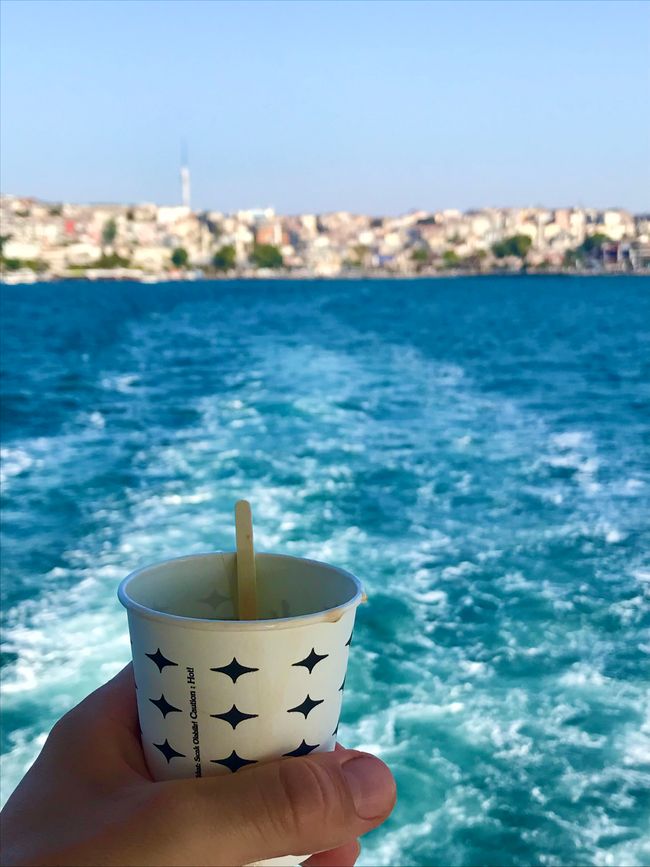
auf-dem-landweg-von-indien-nach-deutschland
vakantio.de/auf-dem-landweg-von-indien-nach-deutschland
Fin de la aventura
Publicado: 26.08.2023
Suscríbete al boletín
Desde Uzbekistán histórico, pasando por el Mar de Aral y el Mar Caspio, saliendo de Rusia y del hermoso Georgia hasta el Bósforo en Estambul...
Primero a Uzbekistán: ¡pudimos experimentar el patrimonio cultural de la Ruta de la Seda! Mucho antes del fuerte desarrollo en Europa, ya existía allí la arquitectura árabe y la educación con universidades (Madaris).


Después de disfrutar del arte y la cultura, seguimos hacia el Mar de Aral. Antiguamente, era el cuarto lago más grande, aproximadamente del tamaño de Baviera (1960), hoy es muy pequeño, solo la mitad del tamaño de Turingia. La principal razón para esto es el desvío de agua a canales para el riego de la cosecha de algodón, pero también de girasoles y demás. Nos sorprendió mucho cuán verde estaba a 150 km del lago, pero justo en el lago hay un polvoriento desierto salino..
Los canales de riego además están abiertos y mal sellados, por lo que se pierde mucha agua en el camino. Además, las plantaciones están creciendo cada vez más, aumentando la demanda de agua.
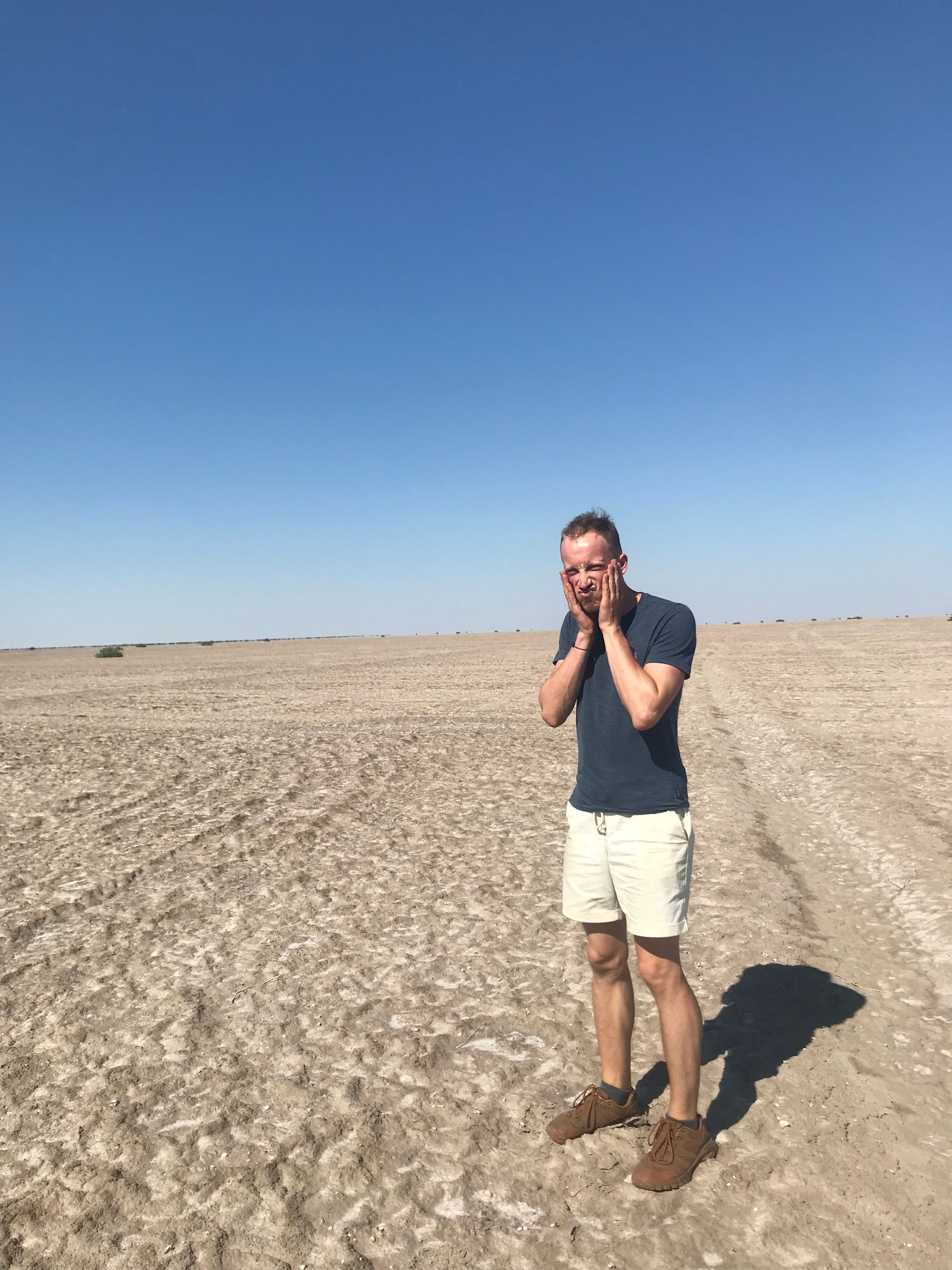
Con el auto, llegamos hasta el lago: desde la costa original hasta la actual son 4 horas de viaje!!!! 180 km. Lo que vimos allí fue lamentable; el agua es extremadamente baja, super caliente (como agua de baño) y extremadamente salada. Nos bañamos y el agua nos sostenía, como en el Mar Muerto.
Al día siguiente, leímos sobre las armas biológicas soviéticas que probaron en la región. En las muchas plantaciones de algodón alrededor del lago, además, se utilizó el agente naranja, un pesticida tóxico para defoliar arbustos que ha demostrado provocar cáncer y cambios genéticos. ¡Estamos bien, por cierto! !!! 😅😅

Además de este pesticida tóxico, durante décadas se han utilizado muchos fertilizantes químicos artificiales, herbicidas y otros pesticidas en la región. Estos todavía están contenidos en el polvo que se esparce por el mundo debido a un gran pasaje de aire sobre el lago (¡el polvo del Aral se ha detectado incluso en el Ártico y la Antártida!).
Rusia: Sí, nos atrevimos. No fue una ponderación fácil. Hay tres rutas en el mar Caspio: cruce de la
Suscríbete al boletín
Respuesta
